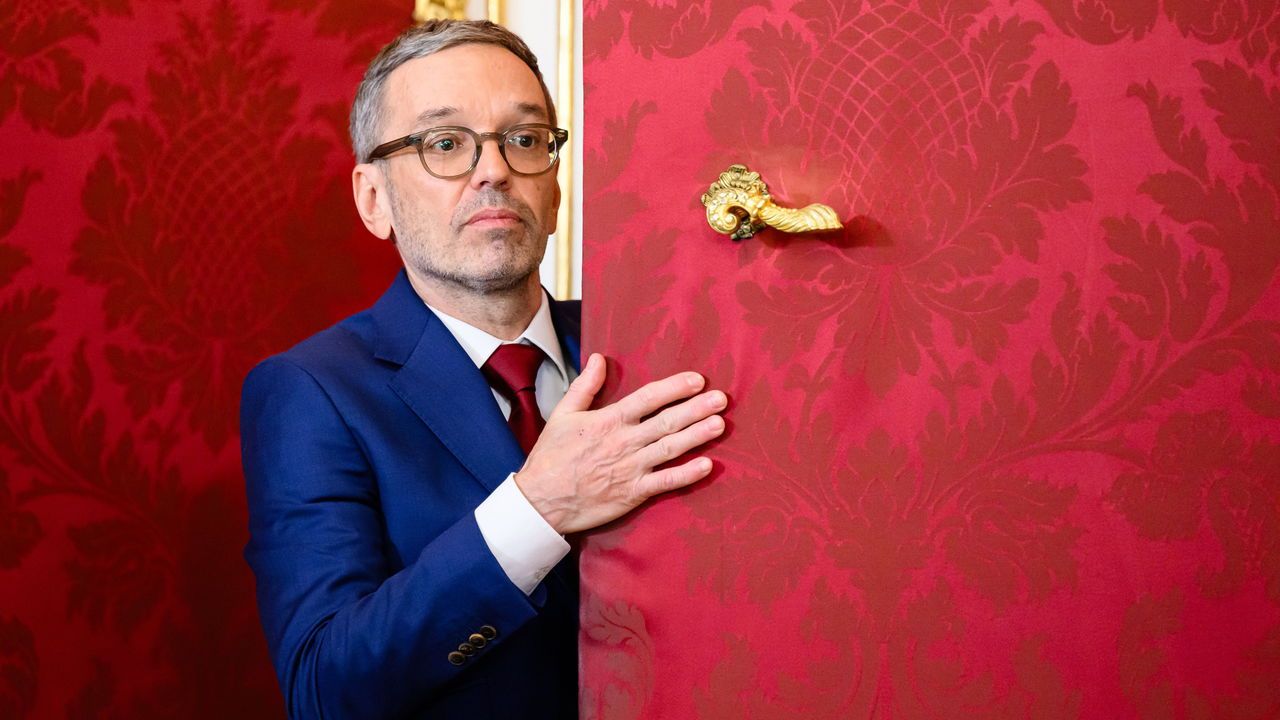- by
- 01 30, 2025
-

-
-
Loading

Loading

HOW CONCERNEDFPöFPö öVPöVP öVP FPö ADADFPöNATO should Europe be at the rise of , the leader of Austria’s hard-right , the ? Following the collapse of attempts by the country’s centrist politicians to keep him out of power after his party came top, though with only 29% of the vote, at an election last September, Mr Kickl now seems set to become chancellor. The has been in government before, as a junior partner. This time, it looks as though Mr Kickl will get the top job. That is bad news for the country: he has called for a “Fortress Austria” free from asylum-seekers and employs rhetoric with Nazi overtones. And it consolidates a of Russia-sympathisers gaining power across central Europe.Mr Kickl may not get everything he wants in the negotiations. With only 31% of the seats in parliament, he now hopes to form a government with the support of the centre-right People’s Party (the ), which initially refused to go into coalition under his leadership until its attempts to construct an alternative failed. It is now up to the to see if an acceptable coalition agreement can be struck. The hope is that some of Mr Kickl’s more extreme positions can be negotiated away. If not, the should refuse to go into government with him. That would probably prompt a fresh election, in which the Freedom Party, polls suggest, would do even better. But that may shock the centrist parties, who would still together have more votes, into trying once again to form a moderate governing coalition.One possible conclusion is that Mr Kickl’s elevation is a harbinger of far-right advances in Germany, which faces an election in February. In fact, the two countries are very different. The has taken part in five national governments, the first as far back as 1983, and in many more state ones. The hard-right Alternative for Germany (f), which polling suggests is on for its best-ever national election result of around 20%, has never been included in any federal or state government, and the “firewall” that excludes them shows no sign of breaking; the f came top in the election in the state of Thuringia last year, but the other parties kept it out of power.The real worry is that Austria exemplifies the Putinisation of central Europe. First came Viktor Orban, the strongman of Hungary. Mr Orban has repeatedly delayed European sanctions on Russia, refuses to allow weapons destined for Ukraine to pass through Hungary, and denounces Brussels and liberal pro-democracy outfits like George Soros’s Open Society Foundation. He has a like-minded neighbour in Robert Fico, the prime minister of Slovakia. And later this year an election in the Czech Republic could see the return to power of Andrej Babis, another Eurosceptical pro-Russian. The central European hard right is already discussing how to maximise its collective influence.The contrast with those former Soviet-bloc countries on or near the front line of Russia’s war is striking. Poland and the Baltic states see Mr Putin for exactly what he is: a murderous revanchist who invades his neighbours, sabotages infrastructure across Europe and interferes with democratic elections everywhere. Those a little farther away seem content to gloss over his enormities, and to applaud him instead as a defender of “traditional” values and a rival to Western institutions in which they do not quite sit comfortably. Mr Kickl’s , for instance, is an official sister party to Mr Putin’s United Russia.Austria is a small country of 9m. It is not a member of . The drift to the hard right there matters a lot less than it would in France or Germany. But it still matters. As Donald Trump prepares to take office and the war in Ukraine enters its fourth year, European unity is needed more than ever. Another leader bent on fighting Brussels and opposing collective action in the face of autocracy will delight only the autocrats.